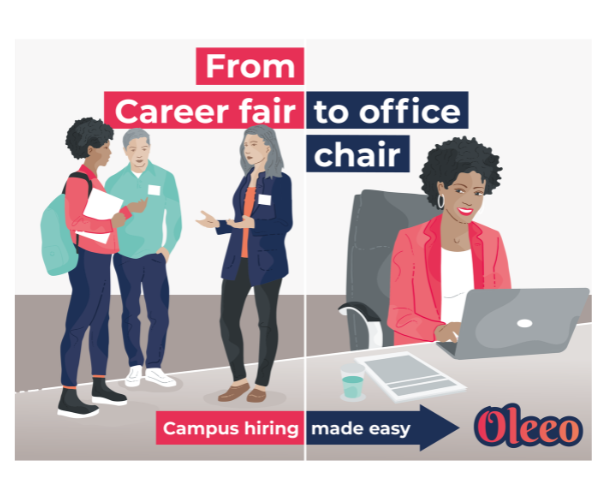One of the barriers that prevents more employers from partnering with community colleges is a general lack of understanding about what these schools—and their students and graduates—can provide, says Tara N. Lewis, Ed.D.
“Employers may not really understand the education and training our students are getting within our workforce programs,” says Dr. Lewis, program career coach workforce for the Department of Labor FLEXTech Apprenticeship Program at Collin College.
“My frame of reference is from IT and cybersecurity. It’s a very hands-on approach to education. Most of our students come out of the program and can jump right in and start working. Most employers don’t really know what our curriculum and approach entail, and what our students are capable of contributing right from the start.”
See Dr. Lewis at NACE22
Tara N. Lewis, Ed.D., will present “Building a Diverse Talent Pipeline Through Community College Workforce Engagement” at the NACE 2022 Conference & Expo in Portland, Oregon.
For example, Dr. Lewis says that many of Collin College’s students in IT and cybersecurity are rescaling, upscaling, or pivoting in their careers, so many of them already have work experience.
Furthermore, the FLEXTech program, which is funded by the U.S. Department of Labor, supports students’ transition into the IT field through on-the-job training experiences, such as apprenticeships.
“When we talk with employers,” Dr. Lewis notes, “they don’t realize that our program is this extensive. We have a really good range of programs to meet the needs of the labor market, including a new bachelor’s degree program in cybersecurity. There are many ways that partnerships with community colleges can benefit employers.”
This includes the students themselves. Community colleges tend to have very diverse student populations, from first-generation and military veteran students, to those across races and age groups, and others who can help employers build their pipeline of diverse talent.
When seeking to develop partnerships with community colleges, employers should first research the school’s programs, communicate their needs, and ask about opportunities to cultivate deeper relationships.
“All of our programs have advisory committees that inform curriculum,” Dr. Lewis says.
“This is very important. Community colleges can pivot, move, and adapt our curriculum to emerging trends and market needs very quickly. We use employer information, guidance, and feedback to do so.”
Other opportunities for employers to engage students and faculty include presenting to classes and during tailored webinars, informational interviews, panels, job shadowing, and more. Collin College also helps employers build internship programs. Furthermore, community colleges are muti-faceted and offer transfer pathways, workforce education, corporate training, and more.
“The benefit to employers looking at community colleges for more entry-level positions—and this is the idea behind apprenticeship—is you are taking on somebody, providing them with on-the-job training and mentorship, and helping create the culture that you want,” Dr. Lewis explains.
“In addition to being ready to step into these roles, these graduates are going to be more loyal to your company and are likely to stay longer.”
She adds the companies that want to pilot a program can choose to do so with community college students.
“It’s a great opportunity because it gives students paid experience and training and allows the company to have a better indication if its program will work or see what adjustments need to be made,” Dr. Lewis says.
For community colleges, building dedicated relationships with employers and keeping that momentum going is a key element of developing that talent pipeline, she says.
To create strong partnerships with employers, Dr. Lewis recommends that community colleges start by:
- Assessing their needs;
- Identifying the capabilities of their students;
- Identifying their strengths in terms of the programs and degrees they offer; and
- Connecting the skills they are developing in their students and how those skills align with the needs in the labor market.
“Share information about your programs, your needs, and opportunities for engagement with students, alumni, faculty, and other departments,” continues Dr. Lewis, who is a proponent of including other campus stakeholders to enhance partnerships with employers.
She recommends career services asking employers for information about their organization, industry, and the job market.
“Ask what their needs are and show them how your programs develop students to meet those needs,” Dr. Lewis says.
“Ask what they need right now and what they anticipate needing in the future. Also, ask them what they are having trouble finding and then work to provide opportunities or to make connections on campus to help them meet their needs.
“Like in programs at many other community colleges, all of Collin College’s IT and cybersecurity faculty have worked in their industry so there is a good understanding of the industry, trends, employer needs, and approaches to address those needs.”






